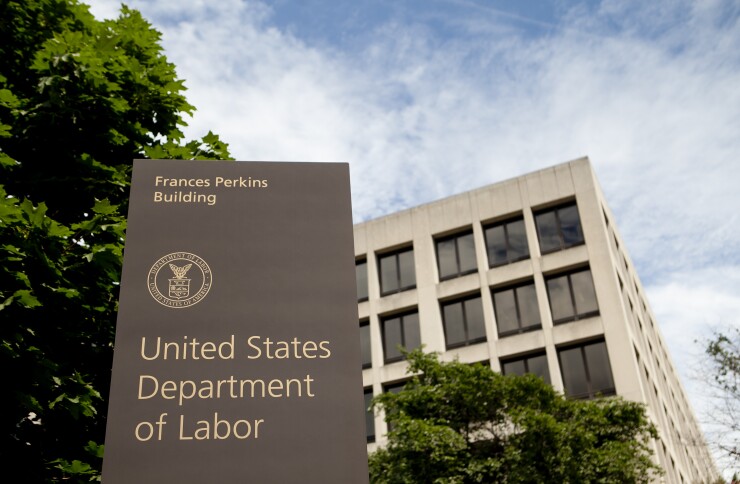Employment rose by 431,000 in March, and the unemployment rate fell two-tenths of a point to 3.6%, the U.S. Bureau of Labor Statistics reported Friday.
Some of the main job gains occurred in leisure and hospitality, and professional and business services, along with retail trade and manufacturing. Professional and business services added a total of 102,000 jobs in March, including 18,200 in accounting and bookkeeping services. Overall employment in professional and business services was 723,000 higher than in February 2020. Average wages rose 13 cents to $31.73 in March. Over the past year, average hourly earnings have increased 5.6%. The labor force participation rate increased to 62.4%, just about one percentage point below its pre-pandemic level.
The Labor Department also revised upward the job gains for January by 23,000, from a gain of 481,000 to 504,000 jobs, and for February by 72,000, from a gain of 678,000 to 750,000 jobs. With both revisions, employment in January and February combined was 95,000 higher than previously reported by the BLS.

The overall job gains for March were somewhat less than the roughly 500,000 expected by economists.
“Although the number of jobs created was not as high as people forecast, the last two months were revised up,” said Diana Furchtgott-Roth, adjunct professor of economics at George Washington University, former chief economist at the U.S. Department of Labor, and former chief of staff of the White House Council of Economic Advisers during the Trump administration. “That continues to be a pattern. That often happens when a lot of small businesses are being created and they cannot get their forms into the BLS at the right time in time to be counted. Then they’re counted in the next month or the month after that.”
The Biden administration
“Tax changes are determined by Congress, and Congress is in no mood right now to increase taxes,” said Furchtgott-Roth. “It’s an election year. Increasing taxes is unpopular and they are not likely. And plus, none of the Republicans want to increase taxes. And Arizona Senator Kyrsten Sinema has made it very clear that she does not want to increase taxes. So they just don’t have the votes to increase taxes unless they put a little tax increase in December in a lame-duck session, which has happened in the past. After the election, then they see how the chips have fallen, so to speak.”
Sen. Joe Manchin, D-West Virginia,
Inflation will be another factor weighing against a tax increase. “We’re actually pulling in vast amounts of revenue because of inflation,” said Furchtgott-Roth. “If we look at how much revenue we are getting, the federal government is pulling in more revenue than ever before. It’s going to continue to do that because inflation is in essence its own tax increase because people get pushed into higher brackets and also the price of goods goes up. So you’re paying more sales tax on your tomatoes, for example, or on the washer and dryer that you want to buy. Taxes are already going up because of inflation, and inflation doesn’t show any signs of going down because the Federal Reserve isn’t raising interest rates enough.”
She suggested that the Fed raise interest rates more quickly, despite a series of interest rate increases that it has signaled it plans over the course of the year. “That’s only going to bring the federal funds rate to 1.9%,” said Furchtgott-Roth. “We have inflation running at 8%. If we want to reduce inflation, then President Biden needs to help by allowing more oil production here in the United States, which would bring down oil prices. He needs to do things to stop raising the cost of labor like project labor agreements, which are raising labor costs. We need to have regulatory reforms to stop allowing these regulations that increase the cost of production for businesses. ... And if Chairman [Jerome] Powell wanted to reduce inflation, he could be announcing increases of 50 basis points rather than 25 basis points.”




